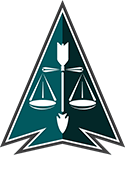National American Indian Court Judges Association
Webinar 2: Successfully Developing Tribal Justice Systems in a Public Law 280 StateThe webinar, “Successfully Developing Tribal Justice Systems in a Public Law 280 State,” was held on March 11, 2015 from 3:00 – 4:30 p.m. (E.T.).Dorothy Alther, Executive Director of the California Indian Legal Services, and Bill Denke, Chief of Police, Sycuan Nation Tribal Police Department, presented on building a justice system in Public Law 280 states. First, they noted that a tribal community should determine if they want a tribal court and their own law enforcement. The presenters suggested utilizing public meetings and questionnaires to assist in making this determination. The presenters stressed that without the tribal community’s support a tribal justice system may fail. Ms. Alther discussed the “Three C’s” that are needed to build a tribal justice system. The “Three C’s” are codes, courts, and cops. She stated that written codes are preferred over oral or verbal laws. The types of court models may vary. Some models she has had experience with are a single court with a single judge or a consortium court, where several tribes utilize an agreement to set up a court. Ms. Alther explained that some small tribes find that a consortium approach is helpful economically. She emphasized that the duties and responsibilities of law enforcement officers must be well defined in an ordinance and in policy and procedures. The presenters discussed funding challenges that may occur in setting up a tribal justice system. Ms. Alther explained that development or “seed” funding is competitive and is for a short duration of time. She discussed that operational or “sustaining” funding can be utilized to continue the ongoing operations of the tribal justice system. She stated that both types of funding are critical to have and may be difficult to secure. The U.S. Department of Justice (DOJ), Bureau of Justice Assistance offers competitive funding sources that tribes may apply for. Mr. Denke elaborated on the topic of cops in building a tribal justice system. He discussed challenges that tribes may encounter in accessing the federal, state, and local law enforcement information systems. He explained that those accessing the law enforcement information systems must be part of a public agency. In California, there was push back from the state and local authorities for tribes to access the systems. Mr. Denke described that in 2009, the Office of Tribal Justice, DOJ engaged tribes experiencing difficulty with accessing federal information systems. The Office of Tribal Justice implemented a pilot project for direct connectivity to the National Crime Information Center (NCIC) and the National Law Enforcement Telecommunications Systems (NLETS). The Community Oriented Policing Services (COPS) Office, DOJ funded the pilot project. Mr. Denke shared his experience of having the Sycuan Tribe’s access to federal and state information systems blocked by the State of California and how the tribe gained access to the systems by working with the Office of Justice Services (OJS), Bureau of Indian Affairs (BIA). We hope this webinar will assist tribes in the development of their justice systems and in accessing law enforcement information systems. The webinar slide deck and recording of the presentation will be sent via email to those who registered for the webinar. It also will be archived on the National American Indian Court Judges Association's website for later viewing. |

